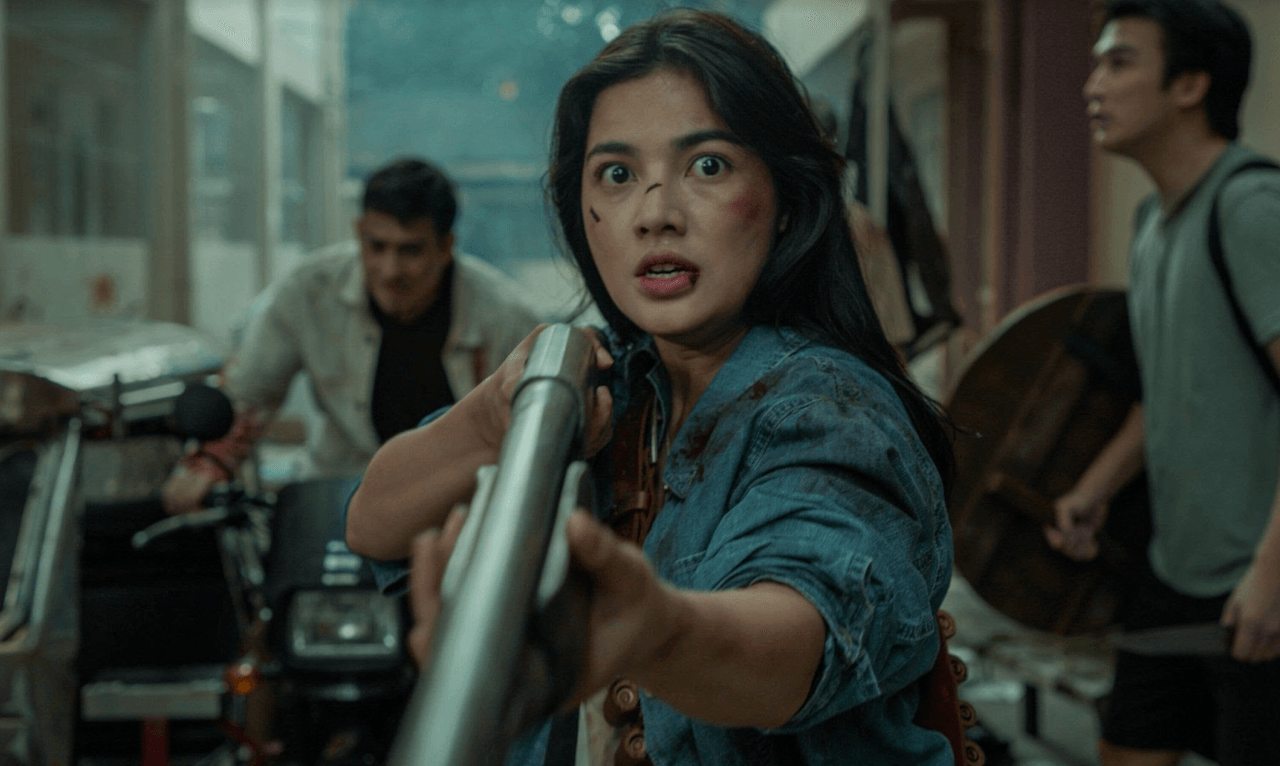SUMMARY
This is AI generated summarization, which may have errors. For context, always refer to the full article.

When one traces how horror stories have been a constant presence in Filipino lives, one cannot look past Shake, Rattle & Roll, Regal Entertainment’s horror anthology film franchise, whose appeal might have declined over time chiefly due to its nine-year hiatus, but remains viable enough to come up with another installment, Shake, Rattle & Roll Extreme, now available on Netflix. The film was initially submitted to last year’s Metro Manila Film Festival (MMFF), but failed to make the cut, prompting its production company to opt for a theatrical run.
And given the temporal distance since its last iteration, Shake, Rattle & Roll Extreme understands that, in order for the franchise to make sweeping gestures amid a growing audience, it must bank on context as its main currency, without forgoing the madness and spectacle of violence that has been the marker of its existence. And what else speaks context far louder than the pandemic the world has endured and, in many ways, continues to endure, as well as the horrors of virtual space?
The attempts at social relevance factor into the film, especially when seen as a whole, albeit to varying outcomes. It captivates when it knows how to toy with its characters and expose them to riskier terrains, but not at the expense of meaning. Images linger, if not strike, more when they’re not forged out of mere necessity. It falters, however, when it begins to repeat plot points and rely on the display of violence altogether, in hopes of achieving its desired effects to the point of tedium, forcing the audience to notice the runtime.
Here is a close look at each episode.
Glitch (written by Noreen Capili and Anton Santamaria, directed by Richard Somes)
Donna Carriaga is the best, if not the most exciting, part of Glitch. Considering the parts Carriaga has played prior to this (see Ten Little Mistresses, Third World Romance, and Rabid), it doesn’t sound preposterous to say that she can do no wrong. She elevates Glitch because she doesn’t merely understand the assignment but studies it. As the house help, she induces tension and dread when she figures out that something is not right. But she can only do so much because when she’s taken out of the picture, one begins to notice the film’s rickety design, one that disintegrates upon closer inspection. If anything, it loses its force because the details are rendered in ways that make it so crafty. The characters live in a mysterious house haunted by mysterious forces, conjured through a mysterious game, and director Richard Somes, rather than fleshing out the premise about lost media, is bent on harnessing this frame of mind to the extent that the mystery becomes so artificial. And the final sequence, clad in divine contrivance, is simply a comedy of errors.
Mukbang (written by Rona Lean Sales and Jerrold Tarog, directed by Jerrold Tarog)
Among all the episodes, Mukbang stands out because of its sense, and not semblance, of completeness, a moment of sturdiness in a shaky whole, as one might add. Director Jerrold Tarog, with co-writer Rona Lean Sales, pokes fun at the film’s equally funny premise: a group of content creators, of varying status and follower count, gather at a ritzy mansion to film a mukbang, a collaboration that exposes each character’s facade and hunger for virality. The film is filled with excitement and flavor because the cast is good at being annoying influencers, mastering that “personality” exactly how Twitter/X would describe it. Characters act like they’re really the Main Characters, whether behind or in front of the lens, whether in the face of danger or otherwise. And it’s loads of fun to see this very specific clique be trailed by hilarious but also terrifying shapeshifters. Contrary to the first segment, Mukbang, like a good prankster, knows that the artificiality in the way it captures the idiosyncrasies of influencer life is only part of the formula and not the formula in its entirety.
Rage (written by Trisha Mae Delez, directed by Joey de Guzman)
Rage, above anything, winds up like an episode of a longer piece, which is to say that it is so stretched out to the point of repetition. The metaphor obviously alludes to the pandemic, as its characters try to steer clear of a rage-borne disease that makes everybody go nuts. It is a trip, especially when the film leans on its own absurdity, but that’s about it, really. It takes a lot of suspension of disbelief for the film to hold water, and perhaps one can talk about it solely in terms of its effect, precisely because it forgoes character arcs and any sense of direction for this desired result. Everything in it is predictable, which can still work, if only director Joey de Guzman did not forget that predictability can also be exciting. At the minimum, it needs to be earned. The narrative goes to many places, but barely moves, as if forcing the viewer to concede to its stunted idea of progress. It is too reliant on tropes to even produce anything organic. More than the direction, the segment is marred by faulty acting, save for the work of Jane de Leon and Bryce Eusebio, who at least managed to be believable. By the time it reaches its final frame, Rage feels like it loses sight of the fact that it has a story to tell, that it needs to push itself and not devolve into something so flat and stale. – Rappler.com
Add a comment
How does this make you feel?
There are no comments yet. Add your comment to start the conversation.